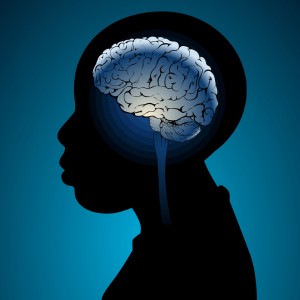Diabetes May Contribute to Low Hippocampal Volume in Bipolar Disorder
Type 2 diabetes can damage the brain, particularly by reducing volume of the hippocampus, and frequently occurs in patients with bipolar disorder. A recent study of patients with bipolar disorder and abnormal glucose metabolism showed that patients with bipolar disorder who also had insulin resistance, glucose intolerance, or type 2 diabetes had smaller hippocampi than both patients with bipolar disorder and normal glucose function and normal control participants without a psychiatric disorder. In those with bipolar disorder and glucose abnormalities, age was associated with lower hippocampal volume to a greater extent than in bipolar patients with normal glucose function.
In the study, published by Tomas Hajek et al. in the journal Neuropsychopharmacology, not only did diabetes or prediabetes reduce the size of the hippocampus, but also reduced gray matter in the cerebral cortex, including the insula.
The researchers hope that treating diabetes, or possibly even its initial symptoms, more effectively may prevent these gray matter losses and slow brain aging in patients with bipolar disorder.
Poverty Impacts Brain Development
 In a 2013 study of children by Luby et al. in the Journal of the American Medical Association Pediatrics, poverty in early childhood was associated with smaller white and gray matter in the cortex and with smaller volume of the amygdala and hippocampus when the children reached school age. The effects of poverty on hippocampal volume were mediated by whether the children experienced stressful life events and whether a caregiver was supportive or hostile.
In a 2013 study of children by Luby et al. in the Journal of the American Medical Association Pediatrics, poverty in early childhood was associated with smaller white and gray matter in the cortex and with smaller volume of the amygdala and hippocampus when the children reached school age. The effects of poverty on hippocampal volume were mediated by whether the children experienced stressful life events and whether a caregiver was supportive or hostile.
The children were recruited from primary care and day care settings between the ages of three and six, and were studied for five to ten years. They were initially assessed annually for three to six years and information on psychosocial, behavioral, and developmental dimensions were collected. Then the children took part in a magnetic resonance imaging (MRI) scan and continued annual assessments that included information such as whether the children experienced stressful life events.
Previous research has shown that poverty affects children’s psychosocial development and economic success in adulthood. This research shows that poverty also affects brain development. The findings suggest important targets for intervention that could help prevent these developmental deficits.


